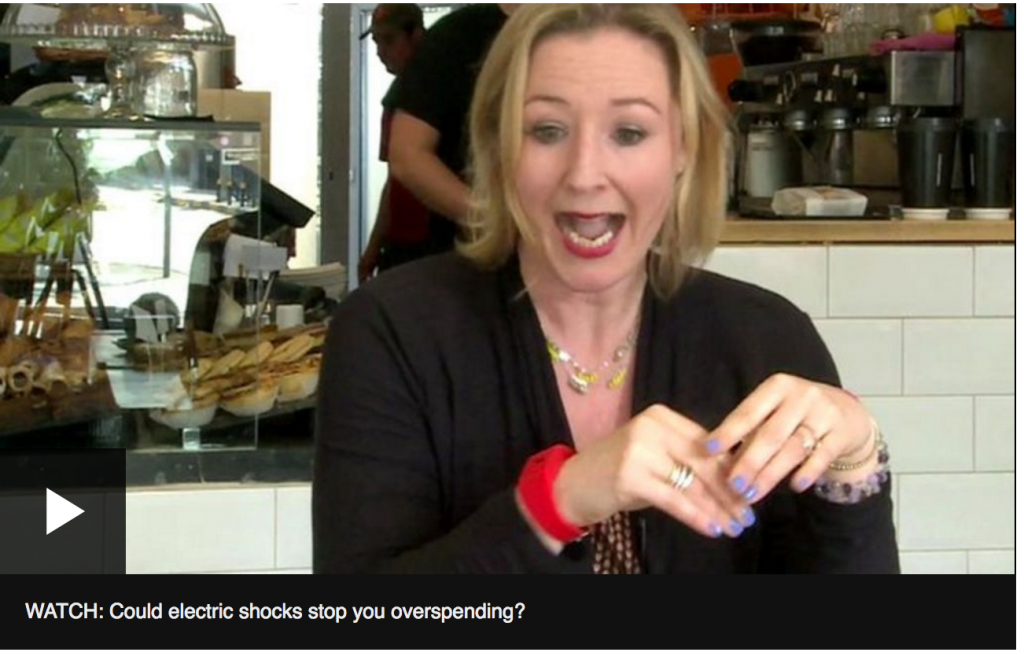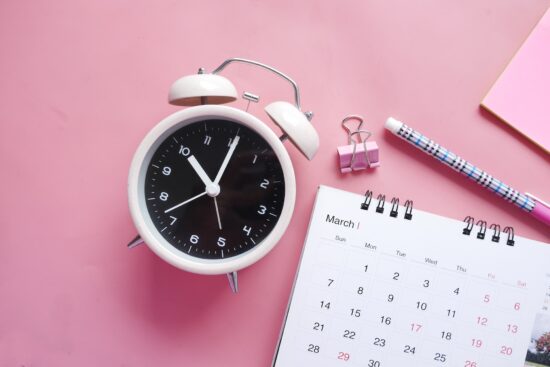
Introduction:
As of this post, Americans currently have a total of $986 billion in total credit card debt, with total household debt topping $17.05 trillion in the first quarter of 2023. While taking out a loan for university or continued education is arguably a good investment for some, the majority of credit card debt comes from spending on things we just don’t need.
Now, of course, the common sense solution to the problem is to stop spending money you don’t have. But the truth is, thanks to billions of dollars spent on marketing consumerism, credit card spending is more of a bad habit than anything else.
As you know, at Pavlok, we’re all about breaking those bad habits. Here are a 15 ways to help you reduce credit card debt and spending, and get back on track.
1. Delete your saved credit card info on your favorite shopping sites
It’s now easier than ever before to use your credit card for needless purchases which won’t help you reduce credit card debt at all. It wasn’t long ago you had to physically pay for everything in person. Now? Not so much. With two-day shipping on Amazon and other online retailers following suit, you can literally rack up thousands of dollars in credit card debt in just a few clicks.
To make it harder for you to use your credit card, delete your saved credit card information from all of your favorite places you shop. Yes, including Amazon. In fact, delete it from everywhere – your digital wallet, your password safe, and even your browser.
2. Lock your credit cards away
Admittedly, this may seem silly to some, but in our experience the more resistance you create to prevent you from using your credit card the better.
Take all your credit cards and throw them in a small personal safe. Use a password on the safe that you don’t know by heart and keep the password written down in a place that will inconvenience you.
For example, you could keep the password written on a notecard in your car, so every time you had the urge to use your credit card you’d physically have to go outside to your car to get it.
Of course, you should keep your debit card on you at all times, which will ensure you’re only spending money you can realistically afford.
3. Freeze your cards
Another alternative to locking your credit cards up, freezing them is a fantastic way to really up that resistance. Take your credit cards and put them in a plastic bag. Load them in the freezer and watch technology do the work.
In many instances, it will be virtually impossible to read your card due to the ice, and you sure won’t be able to slide your credit card through a card reader if it becomes a block of ice. Again, this might seem extreme to some, but you have to give yourself the best chance to succeed.
4. Give your credit cards to a close family member or friend
Out of all the options on the list, this really is one of the more practical options. However, depending on your relationship with money and your close friends and family, this might not work for you.
A typical conversation would go as follows:
You: “Hey [best friend], can I use my credit card to buy the $200 pillow made out of the finest Australian sheep fur I just saw on TV?”
Friend: “…”
You: Winning.
5. Cut up your credit cards
Another alternative to help you reduce credit card debt and cut back on spending is to literally cut your cards up. Of course, you can easily get a replacement card sent your way, but it will definitely make you think twice before you do.
If you do take this route, be wary that your credit card might carry an annual fee so make sure to track that before you cut your card into bits as you might forget the account is open.
6. Tell your bank to reduce your credit card limit
If you’re determined to have a credit card, this little hack will help you ensure you don’t go overboard. It’s important to note, that this should only be done when you’re confident you won’t go over your spending limit and you’re prepared to pay off your balance in full each month. Otherwise, it could potentially hurt your credit
Again, it’s important that you keep in mind the possibility of an emergency in which case having a higher credit limit would be helpful. Do not close your credit cards without considering your true expenses or the impact it would have on your credit score.
7. Buy frequent household items in bulk
While you might be nodding your head and thinking “obviously,” you would be surprised at how many people don’t take advantage of discount savings at a store like Costco.
Consider buying anything you use on a regular basis in bulk. Toothpaste. Toilet Paper. Protein. Whatever you use frequently.
We’re not suggesting you go out and buy 22 jars of pickles at Costco next time you’re out, but being smart about bulk purchases can help you cut back on hundreds of dollars.
8. Stop eating out; cook at home
While we would never suggest you can’t go out and enjoy a nice meal on the town, if you’re struggling with credit card debt, this is a great place to cut back on your spending.
If you currently eat out 4-5 times a week, try to ease into eating a meal or two at home — no need to give up your favorite restaurant completely. The goal isn’t to rob you of your time spent socializing with friends and family, it’s to help you make a dent in your debt
Loads of credit card debt doesn’t mean you can’t have fun, it just means you should aim to be strategic.
9. Sign up for rewards programs
No, we don’t mean get another one of those high-interest credit cards that stores throw at you when you shop.
There are plenty of free tools and loyalty programs that can help you lock in massive savings. Again, the point isn’t so you can get “more” and spend the same amount you otherwise would have. Rewards programs and discount options are to help you spend less on the things you absolutely need.
Check out sites like RetailMeNot and or the browser extension Honey which will automatically apply discounts to what you buy online.
10. Keep a spending journal
Building awareness around your spending habits will quickly allow you to discover any “triggers” that might be causing you to pull out your wallet and buy that iPad online.
Every time you use your credit card, make a note in your spending journal.
Do you spend more at night? After you’ve had a beer or two? After a fight with your family or significant other?
After several months of recording your spending habits, you’ll be able to see patterns of when you slip up and can make a game plan to help avoid those triggers.
11. Consolidate your credit cards
This is another easy win if you’re struggling with credit card debt. Many credit card companies offer balance transfers which allow you to put all your debt into one account.
One of the major benefits of consolidating your credit card debt is there is only one bill each month and you don’t have to worry about missing a payment and paying a pricey late fee.
You’ll also be crystal clear on how much you owe so you can create and execute the perfect game plan.
12. Earn more money
While the majority of this post has been focused on cutting back or reducing your spending, you can always work to earn more money.
Of course, it’s important to remember that financial habits are just that – habits.
So earning more money won’t solve all your financial woes, but it will give you some breathing room and allow you to build a comfortable lifestyle.
If you’re cutting paper towels to use as toilet paper, you might want to consider looking into additional sources of income.
13. Last resort: Cancel your credit cards
If you’re struggling to get your credit card spending in check, you can as a last resort call in to have your cards cancelled.
The benefit of closing your account is you’re unable to dig yourself deeper into debt. The obvious downside, however, is closing your credit card will very often negatively impact your overall credit score.
That being said, closing your account might give your score a small hit, but defaulting on your credit card payments or maxing out your limit will hurt your score even more.
14. Use Pavlok to help you reduce your credit card spending
Before you feel the need to cancel your credit cards as a last resort, we want to invite you to try our best-selling wearables which help you break bad habits like credit card spending and credit card debt.
In addition to helping people quit smoking, and stop biting their nails, we’ve had many Pavlok users use this method effectively to curb their credit card spending.
Here’s how it works:
For the first few days you have your Pavlok, use your credit card as you would normally. Don’t go out and buy a yacht online, but spend as if you would on a typical day.
Each time you go to pull your credit card out of your wallet, give yourself a light zap. Do this for several days.
After several days, you can continue using your credit card, but you’ll want to increase your chances of success. In addition to zapping yourself each time, you take your card out of the wallet and administer a zap for each number of your card.
8 (zap) 3 (zap) 4 (zap) ….
You get the idea. After just a few days of doing this, Pavlok will have helped you build awareness around your habit, which is the first step in breaking it.
You may notice your desire to use your credit card less, but at the very least you’ll start thinking twice about ordering those imported alpaca shoes.
Conclusion:
We hope this list gives several actionable ways to help you quit your credit card spending. Remember, how you use your credit card is a habit that was created over thousands of individual actions.
It may take some time to get your credit card spending under control, but with the right approach and implementing some of the suggestions above, it’s entirely possible to get your finances under control. Remember, building a healthy financial future is a habit you can learn.














